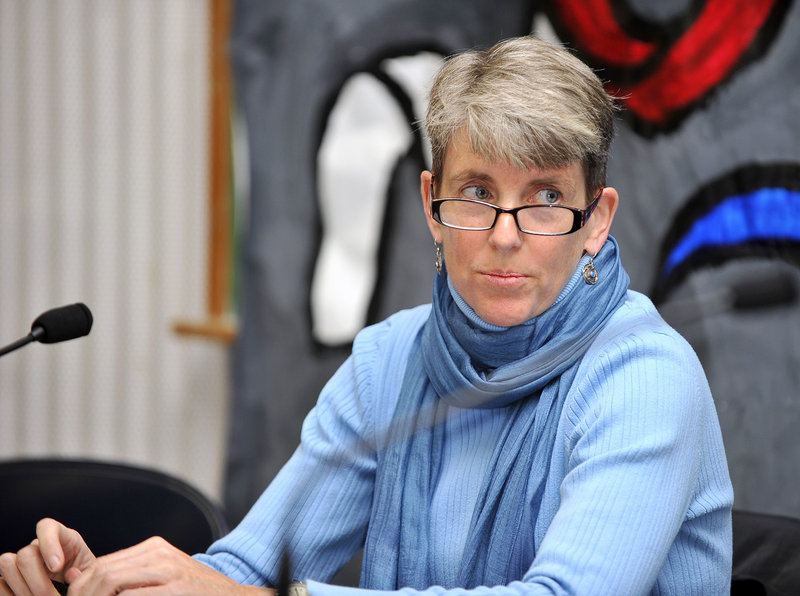Dozens of Salvadoran immigrants who have been living and working legally in Maine for more than 15 years could be forced to leave the country, according to attorneys who have been receiving calls from worried immigrants and family members.
The Trump administration announced Monday that it would end special protections for nearly 200,000 people from El Salvador. The program, called temporary protected status, provides humanitarian relief for people whose countries of origin are hit with national disasters or other emergencies. El Salvador has been included since a pair of earthquakes devastated the country in 2001, and that protection was extended repeatedly under the George W. Bush and Obama administrations.
But the Department of Homeland Security under President Trump argued that short-term relief has become a quasi-permanent program. The announcement stoked fears that thousands of Hondurans, Somalians and other foreigners with similar temporary protections also would be told to go.
Immigrant advocates and attorneys in Maine said they are fielding phone calls from people who are concerned about their children, their jobs and their mortgages.
“People are freaked out, of course,” said Cynthia Arn, an immigration attorney in Portland. “They’ve been here for 20 years, some of them, or more.”
There is no available data on the number of people with temporary protected status in Maine.
Arn said her law firm of Landis, Arn & Jaynes works with a dozen clients from El Salvador who have temporary protected status.
Sue Roche, executive director of the Immigrant Legal Advocacy Project in Portland, said the nonprofit has been working with two dozen Salvadorans, many for more than a decade.
“Many of them have families here,” Roche said. “They have U.S. citizen children. They have long relationships with their employers. I think there’s going to be an impact not only on these individuals, but also on these families and the economy.”
Attempts to interview people on the record about losing their protections were unsuccessful Tuesday.
People from El Salvador who qualified for temporary protected status were already living in the United States in 2001. Since then they have been required to apply for renewal every 18 months, and people who have been convicted of a felony or more than two misdemeanors were denied. Now, Salvadorans who have temporary protected status must leave the United States by Sept. 9, 2019, or face deportation.
Homeland Security officials said Monday that the damage from the 2001 earthquakes has been repaired, so the protection is no longer justified.
“Following the 2001 earthquake, El Salvador received a significant amount of international aid to assist in its recovery efforts, including millions of dollars dedicated to emergency and long-term assistance,” the department said in a statement. “Many reconstruction projects have now been completed.”
But Sister Patricia Pora, longtime director of the Office of Hispanic Ministry for the Roman Catholic Diocese of Portland, said the country is still too dangerous. The U.S. Department of State said El Salvador has one of the highest murder rates in the world, and gang-related crimes like extortion and robbery are common.
“What are they going to go back to?” Pora said.
As of October, more than 430,000 people had temporary protected status across the U.S.
Federal figures show that number includes 262,500 Salvadorans, by far the largest group. Last year, the Trump administration decided not to renew similar protections for 5,300 Nicaraguans and 59,000 Haitians. Next up for consideration are 86,000 Hondurans who have benefited from the program.
“We are hopeful that there will be some congressional action,” Roche said. “There have been some proposals in Congress to allow beneficiaries of (temporary protected status) to gain permanent status.”
Beth Stickney, executive director of the newly created Maine Business Immigration Coalition, said she is reaching out to businesses who could lose workers to deportation. Industries from construction and hospitality to food processing and agriculture could be affected, she said.
“We can’t afford to lose these workers,” she said. “Across every industry in Maine, we have employer after employer saying we need people. It’s going to be my focus to talk with the business community about really trying to measure the impact and talk to our delegation about leading the charge on this.”
In the meantime, Roche said attorneys for the Immigrant Legal Advocacy Project are working with each client to identify other options. Some people might be able to apply for asylum, she said, or they can apply for legal permanent residence because they are now married to a U.S. citizen.
Arn said the backup at the federal immigration court in Boston is so significant that removal proceedings can take years. Right now, that is a consolation to her clients.
“Who knows what might happen in that time,” she said.
Megan Doyle can be contacted at 791-6327 or at:
mdoyle@pressherald.com
Twitter: megan_e_doyle
Send questions/comments to the editors.




Comments are no longer available on this story